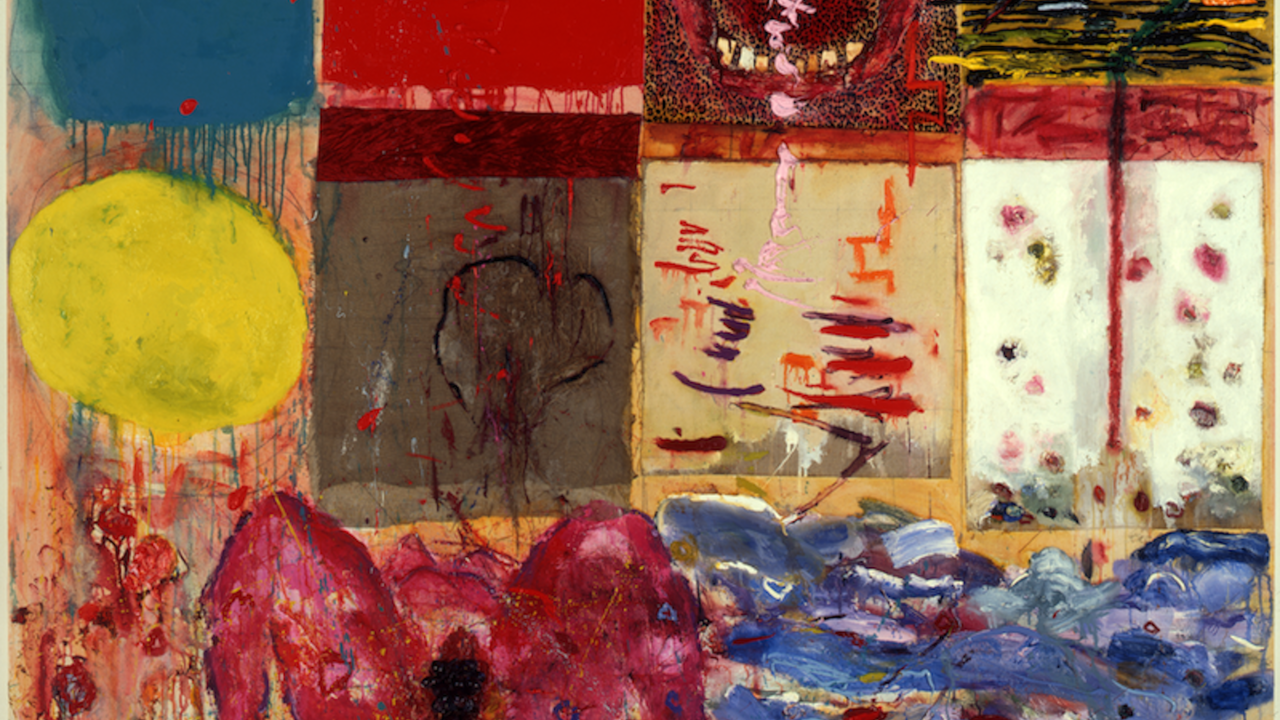Fabrice Gygi
Magasin, Grenoble, France
Magasin, Grenoble, France

Magasin, a 19th-century industrial building, was the perfect location for Fabrice Gygi's first retrospective. The gallery was divided into two sections, the first oriented towards public activities and entertainment, the second resembling a fortified camp, or the dwelling place of some modern day tribal community. The 'public' section came complete with a large tribune on the side; a fenced-off stage in the centre with giant speakers that amplified a hybrid of Techno and commercial Pop; and two stainless steel carts, one designed for food-vending and the other for collective hand-washing. To enter the 'private' section, you had to pass two rows of metal screens upholstered in grey and orange tarpaulin.
Although the pieces on show evoked nomadic lifestyles and festive activities - the mobile sound systems of raves, open air festivals and campsites that inevitably grow around them - Gygi's work is more evocative of an ambiguous dystopia than a happy, neo-Hippie hedonism. A grill-like structure, Scene (2000), rigidly separates performers from their audience. The tribune and the custom-made bins arranged around the stage suggested crowd management, a sparsely designed infrastructure for regulating and controlling people who might gather here for a party. In the 'fortified' camp, the ambiguity was even more potent. Who did all this equipment and material belong to? The military? Terrorists? Civil disobedience advocates? A police attack unit?
The show's sense of dread and control was enhanced by its look of a deserted model city. Although all of the pieces shown - from the tents to the tribune to the food vendor's cart - were obviously fully functional, the visitor was never invited to use them: they were solitary machines, not interactive art works. The hand-washing cart was left running during the show and issued forth an endless stream of soapy water. This was an interesting curatorial twist, since Gygi's work has often been used as interactive art: the food-vendor's cart, on semi-permanent display at Mamco in Geneva for the past year, for example, was placed in the building's atrium for each opening, serving hot-dogs to the museum-goers.
In Grenoble, Gygi's work took a definitely less domesticated cast: all the ambiguous implications of his mobile architecture and urban equipment, its intimations of violence and repression, were more immediately readable when perceived as sculpture. His work portrays a rather bleak social model where little place is left for the individual. Accordingly, his style is minimal, often serial, recurrently relying on industrial and military materials such as stainless steel, plastic tarpaulin and heavy-duty canvas. The colour scheme inevitably hovers between black, battleship grey, urban equipment orange, and military green. Although half of the show was devoted to a campsite, it offered no intimate or private space and a large tent was rather ominously titled Tente Polyvante (Tribunal), (Multi-Purpose Tent, Tribunal, 1999). The only tent which seemed suitable for sleeping in had no bedding, just a hard wooden floor, while the structure designed for bathing was obviously intended for collective, simultaneous use.
The imaginary dwellers of Gygi's world know no such place as home, and would seem to find no solace in domesticity and private life. At the back of the smaller tent was a black rack, on which were hanging four black sets of anti-riot gear - helmets with visors, shields, and police-style batons. If the show had a message, it was this: there is a war going on outside, and it is faithfully reflected by the garrison life on the inside.






















